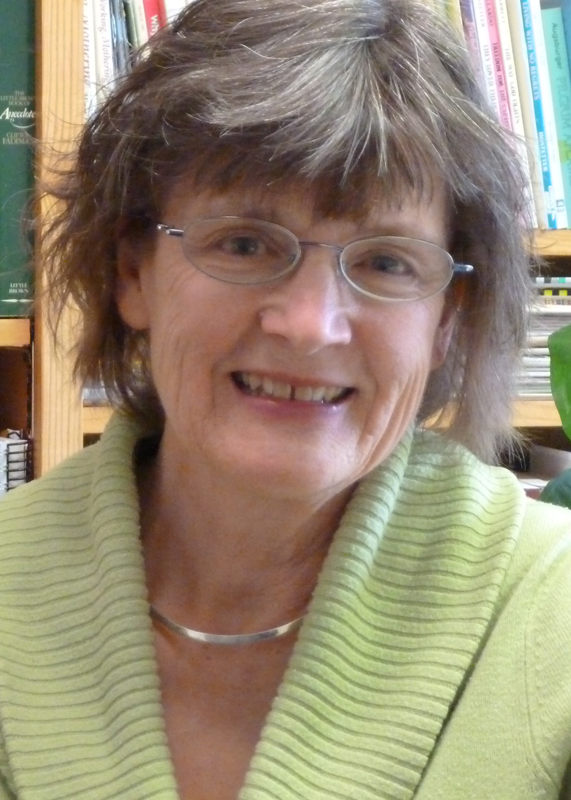A Difficult Job: Caregiving
Those who have cared for a spouse or parent who has a serious or terminal illness or a severe disability know—in ways that no one else knows—how difficult and taxing and exhausting that work is…. in spite of the tough emotional, spiritual, and physical work of caregiving, there are blessings—or benefits for those involved.
I have not done that, but my mother basically took care of my father during the last several years of his life when he had increasing dementia and some disability. I have also walked alongside many others who have—from a less involved distance. When the person you’re caring for is a spouse, the idea of marrying them “for better or worse” and “in sickness and in health” certainly comes into play here.
An online friend of mine recently wrote a helpful short book, The Caregiver’s Beatitudes (Energion Publications, 2014), out of his experience taking care of his wife several years ago as she dealt with breast cancer. Robert Martin is a blogger who organized a blogging network called MennoNerds, who early on accepted me into their fold because, frankly, they needed more female bloggers on their list. But I’m tickled for the network, which is also what you need when you go through a time of taking care of an ill or needy family member.
Recently a church friend lost her sister, age 52, to a long fight with cancer. My friend tried to be a support for her family—taking turns sitting with her sister after she was placed in hospice care, making sure the rest of the family had hot meals. Some of us from church also helped with meals, but I know—from hearing others share—that caregiving is relentless and draining. Just when you think one need has been met, another rears up. All of this in addition to struggling with grief, sorrow, guilt, and your ongoing employment or other responsibilities.
So I was anxious to learn from Robert Martin’s insights as he worked his way through the Beatitudes spoken by Jesus over two thousand years ago.
The fact that Robert casts his tips in the framework of the Beatitudes (in the Bible, Matthew 5: 1–9) means that in spite of the tough emotional, spiritual, and physical work of caregiving, there are blessings—or benefits for those involved. Perhaps you can only see them much later, but most of my friends who have gone through this recognize how the experience—though they would never ask for it or wish it on anyone—made them stronger and more empathetic human beings. Of course, all of us wish there were other ways to learn these lessons than by watching your spouse, mother, or father struggle with end-stage cancer, diabetes, Lou Gehrig’s, Alzheimer’s, or any other debilitating disease.
Here are several examples from the book. Robert—amid the stress and runs for treatment and visits to doctors and nursing care at home—drew strength from knowing there were others supporting him and his family’s journey. Robert and his wife have two adolescent children. Out of the first Beatitude, “Blessed are the poor in spirit,” he rewrites it to say, “The spiritual poverty of the lonely caregiver is met with the lavish spiritual wealth of the community of believers.” His church family was relentless in their support. He felt like he was just the pinnacle, so to speak, of a pyramid of support, the tip of the iceberg. I have heard others say they do not know how those who are not part of a church community struggle through the difficult time of a family member’s serious illness or injury. Robert found the psalms of David spoke especially to the job of the caregiver. He also suggests lassoing folks who will not only pray along with you (or for you when you can’t pray) but will listen to “your junk” and let you unload the ugly, selfish, and exhausted tirades.
Out of the second Beatitude, “Blessed are those who mourn for they shall be comforted,” Robert wrestles with the things he mourned during his wife’s illness. Her treatment for breast cancer eventually led to a diagnosis of “cancer free,” but while in the throes of her treatment and long-term recovery, he acknowledges he very much missed their intimate connection as husband and wife. “It was like cancer had taken over not just my wife’s body but our entire lives,” he reflected, speaking of his whole family. Holidays, schedules for his children, recreation—all had to revolve around his wife’s treatment plan and rest. This is hard for all—especially children—to understand. Robert said he needed to learn that when he was struggling, he found he needed to leave: go off by himself to cry or be angry or talk things out with God or a friend. “Your loved one doesn’t need to be burdened with your own grief, they have enough of their own,” he reminds us. At the same time, you want your loved one to know how much they mean to you and how much you mourn for your mutual losses.
The book is just 34 pages and part of a larger series by this publisher called Topical Line Drives. As the series title implies, the books are “straight to the point in under 40 pages.” While not a big book, the authentic, heartfelt experiences of Robert and his family speak even more eloquently than the words.
If you know someone who might benefit from this book, I can send you more information. Contact me at Another Way, 1251 Virginia Ave., Harrisonburg, VA 22802 or. Or check the website of the publisher, www.energion.com, or a post on Robert’s blog about the book: Caregivers Beatitudes Book.




